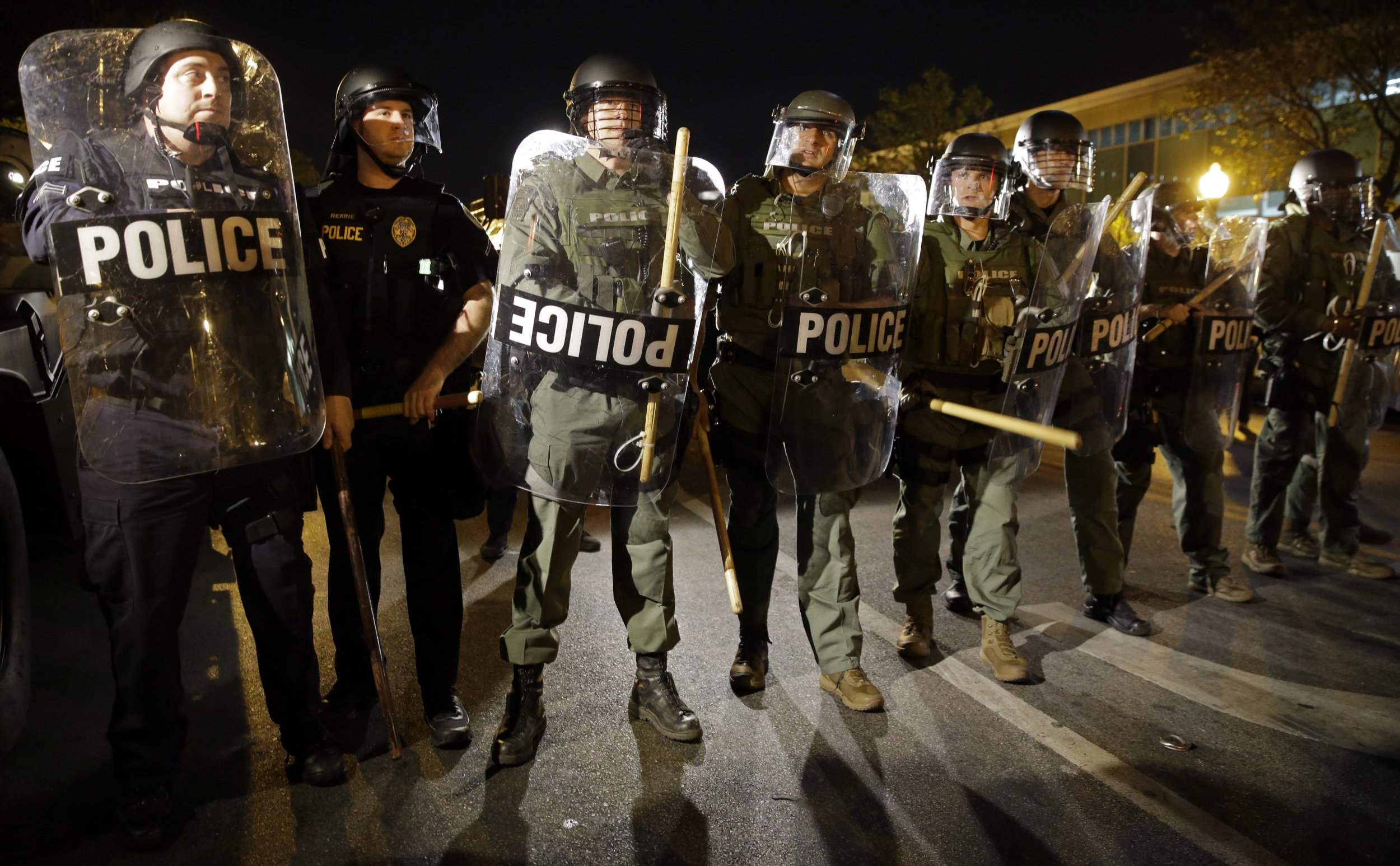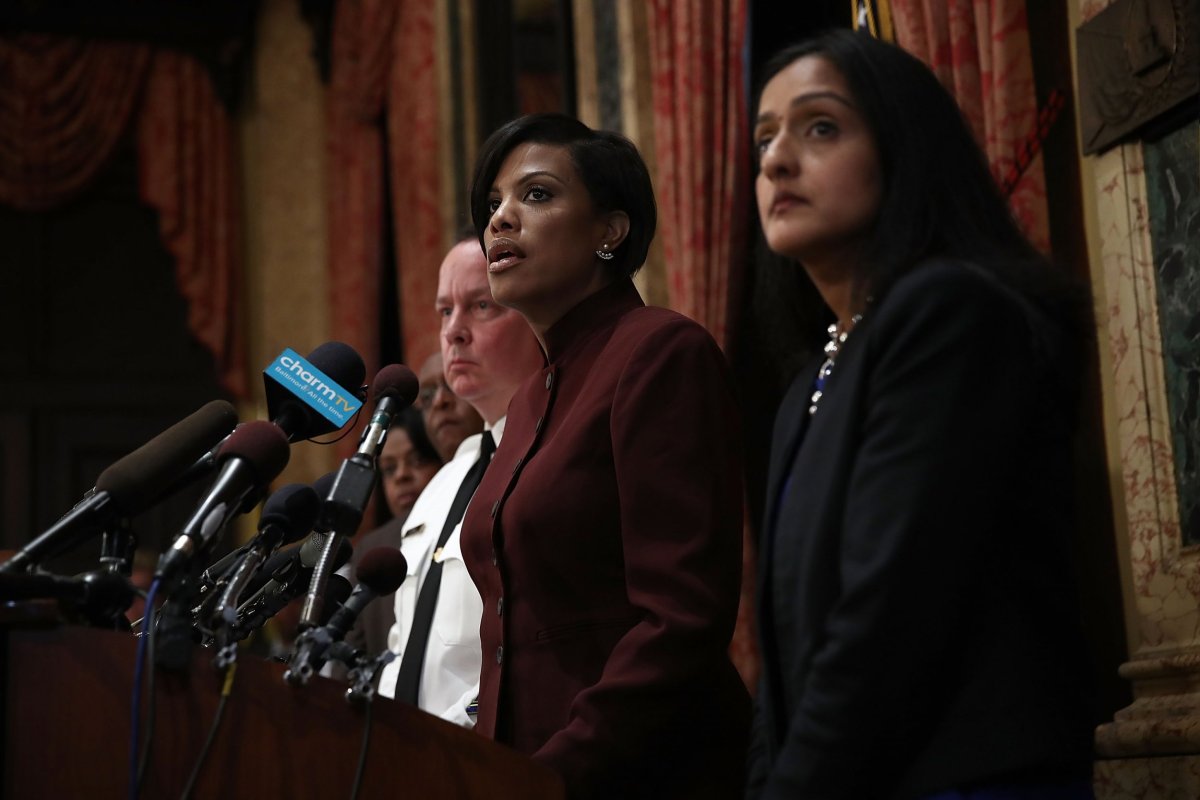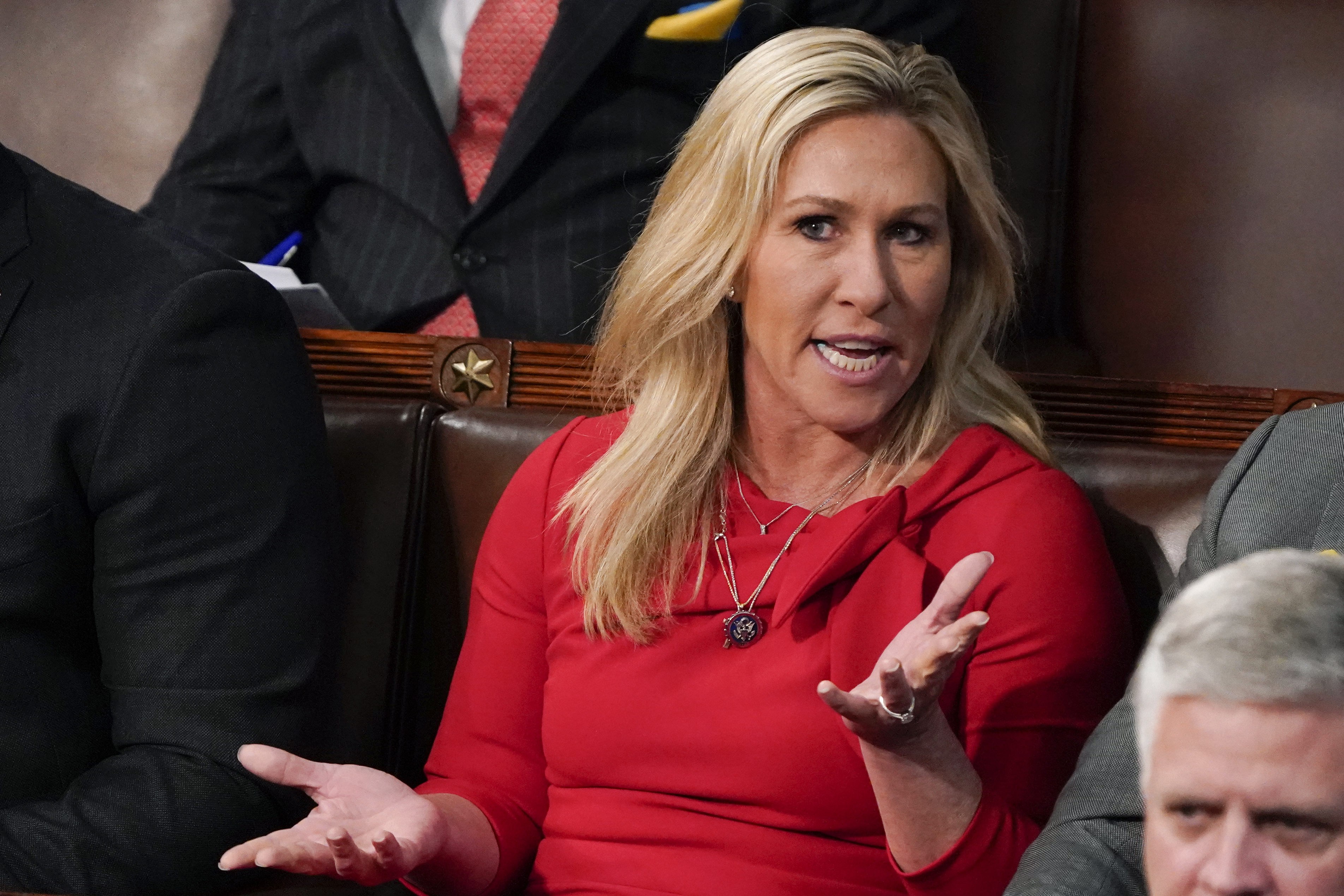
The Department of Justice (DOJ) just released the findings of its probe into the Baltimore police department and announced its agreement with the city to create a court-enforceable settlement that will reform the racist policies uncovered by its investigation.
The Baltimore PD targets black people for stops, searches and arrests; uses excessive force; does a poor job investigating sexual assault; and puts detainees in danger when it transports them, according to the 163-page DOJ report. Baltimore Mayor Stephanie Rawlings-Blake asked for the Justice Department probe last year after Freddie Gray died of a spinal cord injury he received while riding in the back of a police van.
At a City Hall press conference on Wednesday, the head of the DOJ's civil rights division, Vanita Gupta, said her office and the city will negotiate an agreement on how to reform the department. "We need this entire community, and the energy of this entire community, to help us craft the details of our consent decree and drive real, lasting change in this city," she said.
The Justice Department is currently enforcing consent decrees in 14 cities—including Ferguson, Missouri; Cleveland; and Newark, New Jersey—where it found constitutional violations by police. Those decrees represent an agreement between the federal government and the city to reform police practices and usually include the appointment of a monitor who reports to a federal judge on the department's progress. (Consent decrees can also be reached as a result of a class-action lawsuit, as in the New York City suit that severely curtailed stop and frisk by the city police.)
"The goal is to have the Newark Police Department undertake systemic reform, to put in new policies and, more importantly, practices, that reflect modern policing," says Peter Harvey, the independent monitor overseeing the consent decree signed by the city of Newark in March. Harvey, a former New Jersey attorney general, tells Newsweek that his role includes showing the Newark PD policies and practices used by other departments that reflect "modern constitutional policing," encouraging the department to educate its officers and then make sure they're following the new guidelines.
And if the city or department refuses to reform? The federal judge overseeing the decree has the power to order punishments such as fines.
As the Justice Department and a city negotiate the consent decree—complete with specific areas of focus and recommendations—they'll also agree on the federal monitor who will oversee the reforms and report to a federal judge on the progress. Then the monitor will assemble a list of law enforcement and community experts to serve on the monitoring team.
"It seems like in Baltimore's case there are lots of concerns about unconstitutional stops and arrests, so the monitor would put together a list of experts who have experience dealing with reform in those issues," says Rod Brunson, a member of the team monitoring the Newark police and dean of the criminal justice school at Rutgers University.

In cities where the Justice Department has investigated police departments, the resulting consent decrees have usually been effective at forcing reform. "In places where you don't have investigations, things are left to fester," says Ezekiel Edwards, director of the American Civil Liberties Union's Criminal Law Reform Project. "The reality is that we need more DOJ interventions. It may seem that there's a flurry of these, but that's a drop in the bucket compared to how many police departments [there are.]"
Cincinnati is a positive example of reform stemming from a court settlement, Edwards says, though the 2002 agreement there differs from the consent decree signed in Newark and the one coming in Baltimore in that it was the result of class-action lawsuit, not a Justice Department probe. "Cincinnati is one example where there was success in reducing the number of police-involved shootings and [improving] relations between the police and communities of color," he says.
Lawyers experienced with consent decrees call for patience, and maybe even pessimism, in Baltimore. "If the leadership in the city or in the police department stops valuing and enforcing whatever agreements are made, it's going to be hard," says David Kairys, a law professor at Temple University and a longtime Philadelphia civil rights attorney. "There's such a long history of these kinds of abuses that with any positive change there's always the danger of sliding back and regression to more traditional modes of operating."
Kairys won a consent decree when he sued the city of Philadelphia in 1985 over "Operation Cold Turkey," in which cops arrested 1,444 almost entirely innocent people who merely walked through intersections frequented by drug dealers. Kairys initially thought the "Cold Turkey" consent decree would bring about significant reform, but he came to the disappointing realization that it did not.
"For [reform] to work long term, it has to really be inculcated into the policing system," he says.
Uncommon Knowledge
Newsweek is committed to challenging conventional wisdom and finding connections in the search for common ground.
Newsweek is committed to challenging conventional wisdom and finding connections in the search for common ground.
About the writer
Josh Saul is a senior writer at Newsweek reporting on crime and courts. He previously worked for the New York ... Read more
To read how Newsweek uses AI as a newsroom tool, Click here.








